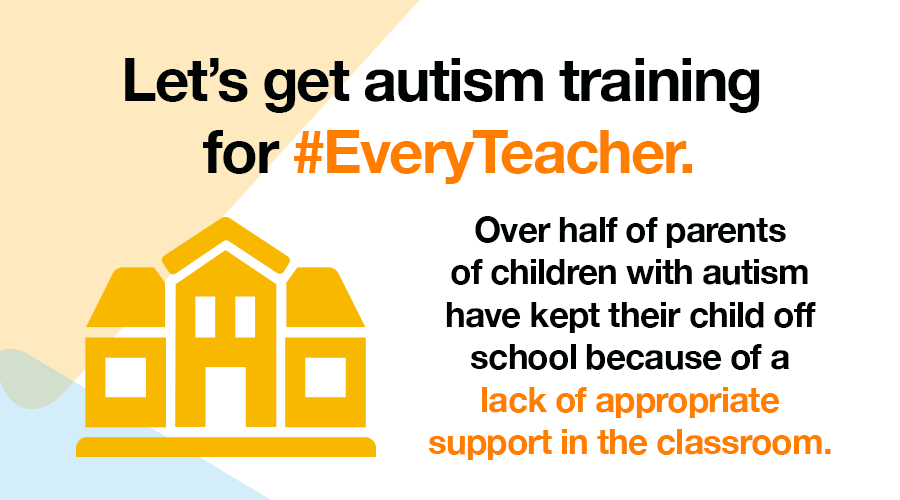Every Teacher
What is Every Teacher?
Every Teacher was a joint campaign led by Ambitious about Autism and the National Autistic Society calling for every teacher to learn about autism during their initial teacher training.
What did the Every Teacher campaign involve?
Working together with other charities means that we can increase our reach and chances of success. Together Ambitious about Autism and the National Autistic Society already had a shared history in training educational professionals about understanding autism through our work on the Autism Education Trust. Through our research and survey evidence, we made the case for change to campaigners who signed our open letter to Government.
One of the biggest factors in determining how well a child with autism succeeds and makes progress at school is how well their autism is understood by their teachers. A survey carried out by the National Autistic Society found that 58% of children and young people with autism believe that the single thing that would make school better for them is ‘if teachers understood autism’.
Research by Ambitious About Autism found that over half of parents of children with autism have kept their child off school because of a lack of appropriate support in the classroom.
Yet training for teachers in special educational needs generally, and autism, in particular, remains patchy, with significant gaps. Some teachers have received no Special Educational Needs (SEN) training at all. Teachers are clear that they want this training, especially in autism. A survey conducted by NASUWT, The Teachers Union, in 2013 found that 60% of teachers believed that they hadn't had the training they needed to teach pupils who are on the autism spectrum.
What were the Every Teacher campaign outcomes?
Thanks to concerted campaigning based on our survey work and research, we made the case for including autism in the 2016 Teacher Training Framework for Initial Teacher Training (ITT) courses.
All trainee teachers should now be learning about how to support the needs of autistic children and young people in their classrooms. Given that 70% of autistic children attend mainstream school, this could be transformational.

